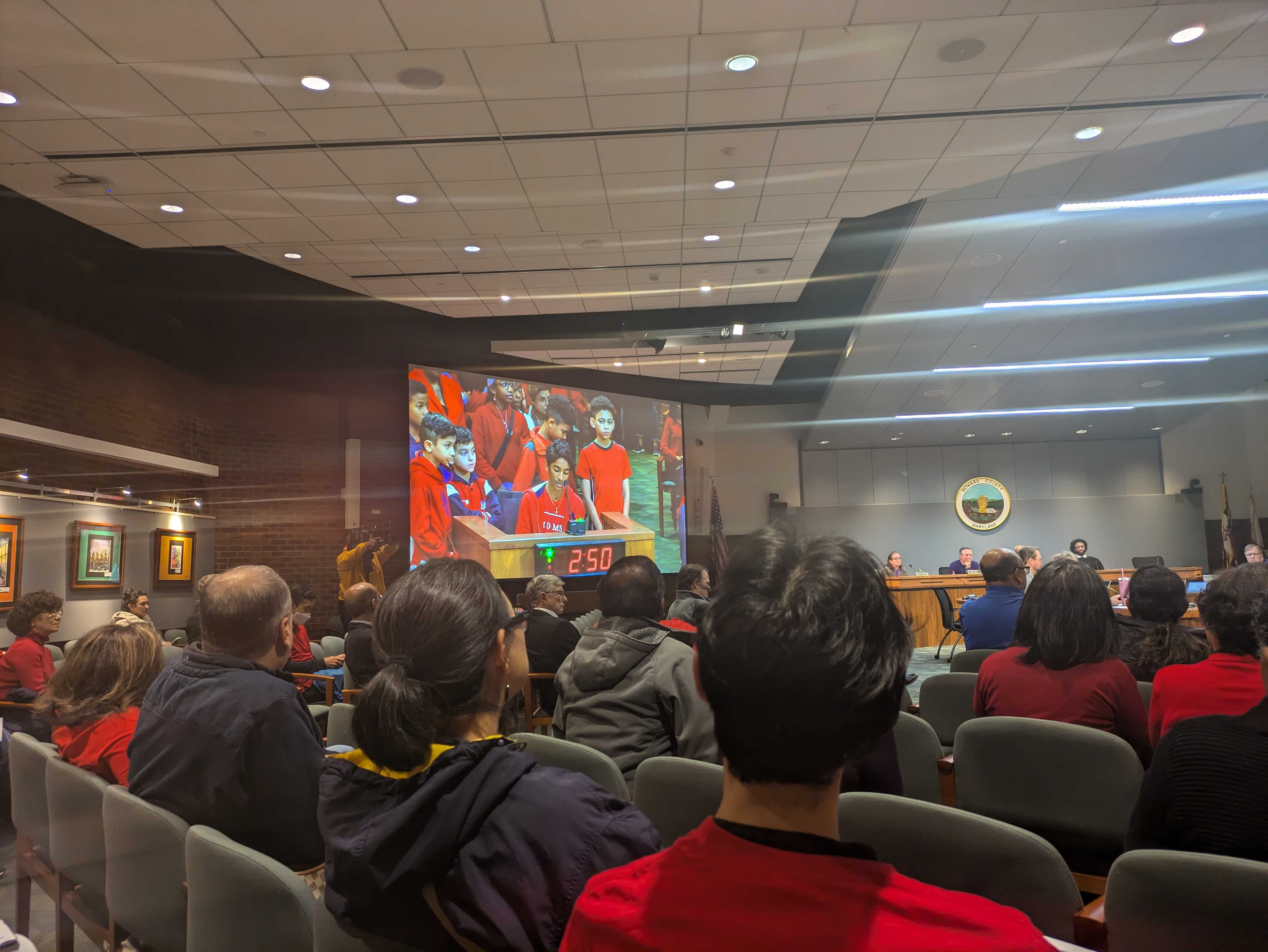
On Thursday, I spoke alongside hundreds of fellow Howard County residents at a Planning Board hearing on chemical recycling. W. R. Grace, headquartered in Columbia, has proposed to start a pilot of "chemical recycling" at their headquarters - read more here. Chemical recycling is not recycling, and poses many potential dangers for the community - with some homes just 80 yards away from the facility. Nearby residents have proposed a zoning amendment to require a safety buffer between chemical recycling facilities and homes; the Planning Board heard from the public about it last Thursday 11/14, and will vote on it this Thursday 11/21 - join me there if you can!
Then on Monday, the Howard County Delegation to the Maryland General Assembly will hold its hearing on local legislation they will propose in the next General Assembly session - including Senator Lam's Ho.Co. 6-25, which would improve transparency around air pollution proposals, inspired by this very issue. Can you testify in support of this bill at the hearing on Monday 11/25? Let us know here!
And check out my spoken testimony below.
Hello, my name is Emily Ranson. I'm the Chesapeake Regional Director for Clean Water Action, a national environmental organization with an office in Maryland that focuses on solid waste, recycling, and composting policies; and I live in Ellicott City.
Clean Water Action is very concerned about this foray into chemical recycling in Howard County. Waste-to-energy schemes like plastic-to-energy are not recycling. In 2021, we worked on legislation that passed in which Maryland deliberately removed processes that recover energy or fuel from its definition of recycling. Burning trash, burning plastic: that is not recycling, especially given that the project description states that it will have "potentially usable energy-containing liquids and gas." This is not an economic shift the county should invest in. It's quintessential greenwashing.
This is not the first time the Cedar Creek neighborhood has been before the planning board. The approval of the zoning itself was controversial because of its proximity to W. R. Grace. This land was originally part of their campus.
The facility, however, is not the victim of new neighbors telling them what to do. Instead, the company is who sold the land to create these new neighbors. At the time, concerns about the proximity these homes would have to W. R. Grace campus were dismissed because of claims that the headquarters only included administrative offices. Shortly after mortgages were signed and new residents moved in, that is when this research and development of plastic-to-fuel technology here emerge. Grace selected a building immediately adjacent to the neighborhood for this project. And because of the company's own economic choices to sell this land for housing development, where there was once a forested buffer between the campus and the nearest residences, there is now none.
Buffers are a best practice. They reduce conflict and improve safety for those living nearby. They provide more flexibility for chemical facilities that may want to adjust their operations. For example, in this case, W. R. Grace now wants to pursue research and development that requires a new air pollution permit.
Less than a football field to people's homes is a wild distance for a research facility that is experimenting with plastic and fuel at high heat and pressure. Across the country, these plastic-to-fuel systems have run into fires and other problems.
Residents across the county should have a buffer within the zoning code to separate and protect them from new sources of air pollution, especially those associated with risky, detrimental projects like plastic to fuel. Please support the zoning code amendment for this buffer. Thank you.


